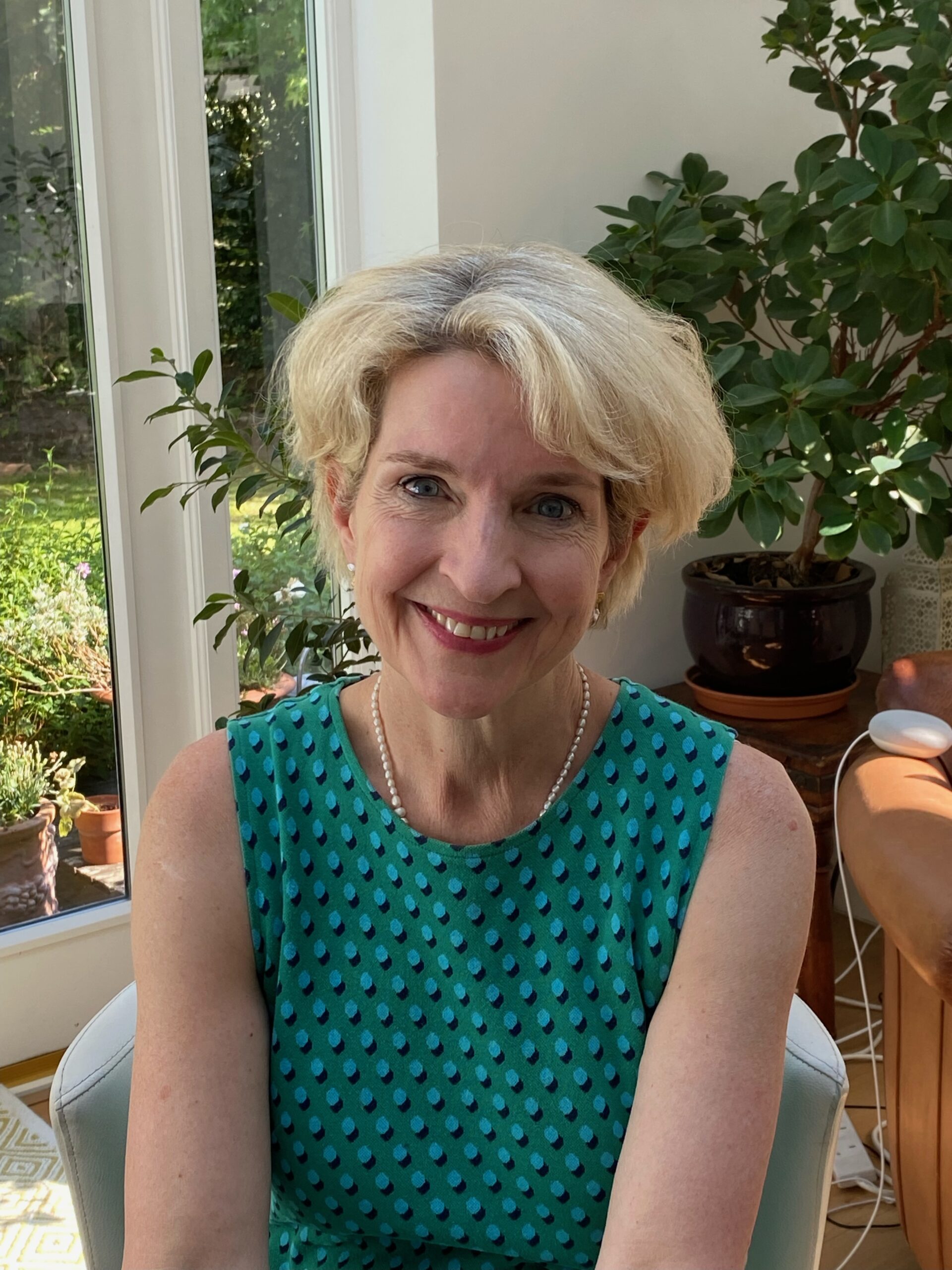‘Widowland’ and ‘Queen High’ are a departure into a creepy alternate reality.
London
This writer met the elegant author Jane Thynne in her leafy London kitchen to talk about the inspiration for her new genre of fiction, written under the nom de plume C.J. Carey. Thynne is well known for her Anglo-German spy novels set in pre-war Europe. She is passionate about historical fiction, assiduous about factual correction and fastidious about research; her recent books “Widowland” and “Queen High”, are a departure into a creepy alternate reality. Combining her interest in totalitarian systems, real characters, real names and a variety of real events with an imaginary heroine, Thynne creates a menacing outcome of WW2. Edward VIII and Wallis Simpson, known Nazi sympathisers, are the puppet rulers of an unrecognisable England governed by The Protector, who is subservient to a totalitarian European superstate named the Grand Alliance, ruled by The Leader, an insipid despot. In this hierarchical illiberal society women are sectioned into six castes, the lowest caste are nicknamed Friedas, from the Nazi categorisation “Friedhofsfrauen” meaning cemetery women. Friedas are deemed useless by the regime because they are old, alone and stigmatised, they are banished to a ghetto to scavenge an existence.
The title “Widowland” stems from an experience of social exclusion she experienced on becoming a widow when her novelist husband Phil Kerr died, and the story of this dystopian superstate comes from an accumulation of Thynne’s fascination and research into totalitarianism, in particular the Third Reich. As a scholar of English literature she reveres books, on discovering that during the war the Nazi’s special SS task force combed Europe to seize history books from libraries and private collections in order to rewrite them to suit the Nazi ideology, she was inspired to create a Ministry of Culture to do the same. Thynne amused herself imagining how her heroine, an employee of the Culture Ministry, would rewrite Jane Austen and Charlotte Bronte without the element of women’s emancipation. To enthral the reader and give her heroine a purpose Thynne introduces a thriller element, an assignation plot and the beginnings of a love story.
Thynne writes with a wry wit, her fusion of facts and fiction manifests a plausible if horrific society and compelling sequel to Orwell’s 1984. There are messages about the power of literature, the power of women, the fragility of democracy and how easy it is to control the narrative through propaganda techniques that manipulate/subjugate the population. Widowland is set post-1945 and today there exist reams of period evidence about Nazi behavioural practices to gain the wisdom of hindsight.
Thynne adapts other sources of totalitarian inspiration from the Stasi museum in Berlin, Mao Zedong’s cultural revolution, Stalin and DPRK’s dear leaders, with the result her what-if scenario is disturbingly realistic as there exist some parallels in the world today. One fascinating example is the Stasi technique of using slogans to control behaviour. Thynne believes this psychology was used in UK during the Covid lockdown period, the government used short slogans “wash your hands”, “stay at home”, “control the virus”, “cover your face”, “the rule of six”, “stand 2 meters apart”. Multiple slogans changed frequently, served to frighten and confuse people. Thynne believes that lockdown residual habits are still existential, in that folks are more reserved about interacting within different age groups and remain frightened of each other for fear of catching a pathogen, or being reported for disobedience. Thynne explains that the Stasi took fear of others to the extreme, resulting in one in three East Germans being on file, often reported on by their own families.
Free speech within the Grand Alliance is non-existent, the most frightening sentence in the book is “They know your dreams”; Thynne believes today’s powerful media have a huge influence, she references Joseph Goebbels who took control of the German media in 1933 the minute Hitler came to power. She believes control of the media enables you to control everything, citizens want to believe what they are fed and if the news diet is pervasive folks will suck it up. Surveillance is another of her themes, it is impossible to avoid, that people are in a state of hyper vigilance is one of the contributors that make espionage novels so popular the moment.
Thynne explains that after his abdication in the 1937 Berghof meeting between Hitler and the newlyweds, the former King Edward VIII agreed that the royal couple would have participated in a future alliance. Thynne relates how close her vision of the future is, King George V was extremely worried about the papers left carelessly around the royal household of Fort Belvedere, thus during 1935-1936 MI5 and Special Branch formed a unit to shadow the Prince of Wales and Wallis Simpson. Wallis was revealed to be very friendly with Von Ribbentrop the German Ambassador, everyone confidently assumed the obvious which really worried the protection officers. A brilliant British spy, Klop Ustinov, was within the German Embassy and he was authorised to open the diplomatic bag, where classified papers destined for Von Ribbentrop were found. The prime minister of the time Stanley Baldwin went to King George V to intervene against the marriage. After a fraught few days under pressure Edward chose Wallis over the crown.
In the Widowland sequel “Queen High” the Leader’s demise (spoiler alert) is so terrible it is only referred to as “the Event”, propaganda has obliterated the detail from citizen’s memory; Thynne derived the inspiration for this from the massacre in Tiananmen in 1989 that seems to have been erased from CPC’s and the people of China’s history. She explores methods used to eradicate memory.
Thynne’s integration of past reality fused her broad spectrum imagination and intellect is an intriguing new genre that results an entertaining if cautionary tale of what might have been.

